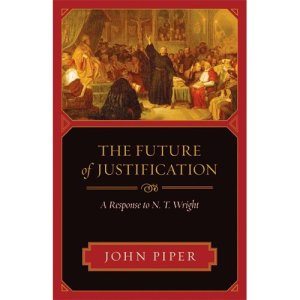I’ve been sitting here watching a Chris Rock special on Comedy Central. I like the guy. I think he’s hilarious on so many fronts.
I also find him thought provoking.
There was a minute long sketch where he goes into talking about his neighbors. You can watch it below if you want (Disclaimer: I make no judgments on use of language, so if you do, don’t watch. Or watch. Just don’t be offended and tell me about it later. This is your warning.)
Here’s the gist.
Chris Rock has three well-known and widely recognized as pinnacles of success in their respective careers black neighbors: Mary J. Blige (R&B Singer), Jay-Z (Hip-Hop, entertainment mogul), and Eddie Murphy (actor who specializes in talking, animated donkeys). Of course, he includes himself, a very successful comedian. The other neighbor, who is white, is a dentist.
And not a famous dentist. Not a “top-in-his-field” dentist. Just an ordinary dentist.
His next statement I latched onto as something worth sharing:
“The black man has to fly to get to something the white man has to walk to.” – Chris Rock
His logic is reasonable for sure. You have award winning artists. Entertainment trail blazers. People who have hosted the Grammy’s. And then you have a regular dentist.
I’m not into suggesting that all “white” people are to blame for this disparity, but I do think that Chris Rock is identifying something that everybody may take for granted: What does somebody have to do to be able to live in your neighborhood?
This happens in myriad of ways. For example. I live in a part of Santa Fe, NM known as Eldorado. It is very much a granola neighborhood. In fact, it was developed as the first solar energy community in the country back in the 70’s. Now its a typically nice place to live in Santa Fe. The school is quite good. Its only a 15 minute drive into town. It takes a certain income level to live out here (but that’s true of any neighborhood). But it also requires an All-Wheel or 4-Wheel drive vehicle. Or a monstrously huge truck with a snow plow latched on the front…because we get snow.
Lots of it. I’ve been shoveling it all day. Why?
Because I’m one of those guys who don’t own a Subaru with All-Wheel/4-Wheel drive. Nor am I the guy with a big truck and snow plow attachment. So that means I shovel, and stay stuck regardless.
Every neighborhood…every city…every culture and sub-culture…has this aspect. There are certain things that make it viable, or not viable, to live, work, play and be a part of the culture. That is the ever present problem of context – we all live, work, play in a context.
And unfortunately, we all breathe in the air of the context to such an extent that we may be “nose-def” to the problems, concnerns and interests of others who may or may not share that same context.
Now, what I’m left pondering after watching Chris Rock, is not just so mono-lithic as to say that the cultural plight of black america is still subject to the whims of white america (What about Asian, Hispanic, or dare I say it, Native American cultures? In other words, there is a history for sure, but its also broader than any one culture or ethnicity over/against another singular culture or ethnicity?). Nor am I trying to be self-absorbed and say “I feel it too! Look here..”
But these issues are more indicative of how we live and relate as human beings, that has ethnic, cultural, socio-economic implications. We tend to never think about what it would take to let someone else live in our neighborhood, because, well, that’s their problem, not mine? I can’t be concerned about someone else’s needs, that’s their responsibility?
And all the while we just recycle the same sad, sorry and pathetic excuses at the expense of developing a more gospel-centered mindset – a mindset that embraces and embodies all that Jesus has done for us. In a nutshell, this is taking on the interests of another upon himself (cf. Philippians 2), and so bridging the way for two opposing groups to be reconciled and live in relationship with one another. That would be God and man, by the way.
So, the gospel, if we truly embrace all of who Jesus is and what He’s done for us, makes Chris Rock’s insight something we should consider.
What would somebody else – somebody who is not like you, somebody who is maybe antagonistic toward you, or someone who has been truly hurt by you or someone like you – have to do, to be able to move into your neighborhood?
Or live in your city?
Or your group of friends?
Or visit and connect with your church?
If we don’t wrestle with this issue, nothing will ever change. And that’s something the gospel is all about.











